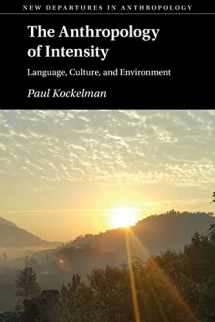
The Anthropology of Intensity (New Departures in Anthropology)
Book details
Summary
Description
What counts as too close for comfort? How can an entire room suddenly feel restless at the imminence of a yet unknown occurrence? And who decides whether or not we are already in an age of unliveable extremes? The anthropology of intensity studies how humans encounter and communicate the continuous and gradable features of social and environmental phenomena in everyday interactions. Focusing on the last twenty years of life in a Mayan village in the cloud forests of Guatemala, this book provides a natural history of intensity in exceedingly tense times, through a careful analysis of ethnographic and linguistic evidence. It uses intensity as a way to reframe Anthropology in the age of the Anthropocene, and rethinks classic work in the formal linguistic tradition from a culture-specific and context-sensitive stance. It is essential reading not only for anthropologists and linguists, but also for ecologically oriented readers, critical theorists, and environmental scientists.


We would LOVE it if you could help us and other readers by reviewing the book
Book review



